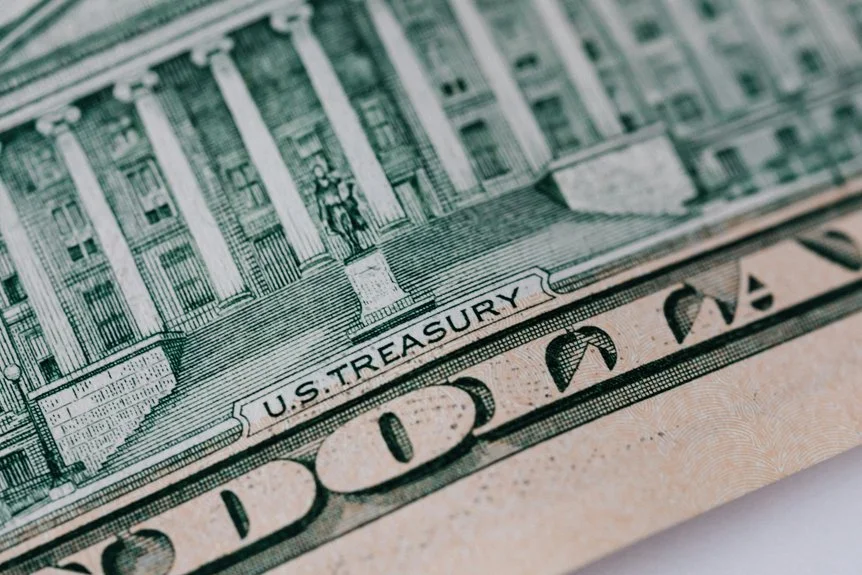
You’re probably tired of watching your paycheck disappear faster than free pizza at the office, and honestly, I get it. After years of wondering where my money went (spoiler alert: mostly takeout and impulse Amazon purchases), I’ve learned that building solid money habits isn’t about perfect budgets or fancy spreadsheets. It’s about creating simple systems that work even when you’re stressed, busy, or frankly just don’t feel like thinking about finances. Here’s what actually works.
Key Takeaways
- Automate savings transfers and bill payments to build wealth consistently while avoiding late fees and overdraft charges.
- Check account balances daily to maintain financial awareness and catch potential problems before they become costly mistakes.
- Pay yourself first by setting up direct deposits into savings, retirement, and investment accounts as non-negotiable expenses.
- Track and celebrate weekly financial wins to maintain motivation and reinforce positive money management behaviors over time.
- Organize receipts monthly and use accounting software to simplify tax preparation and enable accurate financial projections.
Pay Yourself First Through Automation
When I first heard about “paying yourself first,” I honestly thought it sounded like some feel-good nonsense that rich people made up.
Then I discovered automation, and everything changed. You don’t need willpower when your paycheck automatically splits itself before you can touch it. I set up direct deposit to funnel $300 into savings, $200 into retirement, and $150 into investment accounts every two weeks.
You don’t need willpower when your paycheck automatically splits itself before you can touch it.
My financial goals stopped being wishful thinking and became inevitable outcomes. The key is treating these transfers like non-negotiable bills. Set up autopay for everything you can too – many companies offer discounts for it.
When automation handles your money moves, you can’t accidentally spend what you’ve already saved. The magic happens when compound interest starts working on those consistent contributions, turning small amounts into substantial wealth over time.
Set Up Recurring Bill Payments
After I automated my savings, I realized I was still playing financial Russian roulette with my bills every month. You’re probably doing the same thing – scrambling to recollect which bills are due when, praying your account has enough money.
Set up recurring payments for your rent, utilities, phone, and insurance. I even automate my quarterly car registration because who recalls that nonsense? Most companies offer discounts for autopay – I save $5 monthly on my phone bill alone.
Track your automated expenses in a simple spreadsheet so you know exactly what’s impacting your account when. Use accounting software to track your income and expenses alongside these automated payments for a complete picture of your financial health. This habit eliminates late fees, protects your credit score, and frees your mental energy for building wealth instead of managing financial chaos.
Check Your Account Balances Daily
Now that your bills run themselves, you’ll want to know exactly what’s happening in your accounts every single day. Checking your checking account balances daily isn’t obsessive—it’s strategic. I spent three years wondering where my money vanished before I started this habit, and wow, what a difference.
Morning balance checks create instant financial awareness. You’ll catch that sneaky $12.99 subscription you forgot about, spot potential overdraft situations before they cost you $35, and actually know if you can afford that coffee. This daily monitoring transforms funds management from guesswork into precise control.
Set a phone reminder for 8 AM. Check your main accounts while drinking coffee. Takes two minutes, saves hundreds in fees, and builds healthy money habits that compound over time. Since this is a simple daily task, it typically takes around 20-30 days to become an automatic habit that requires little conscious effort.
Organize Receipts as You Go
While you’re building that daily balance-checking habit, there’s another money task that’ll save your sanity come tax season—organizing receipts as they happen. Trust me, I’ve learned this the hard way after spending entire weekends sorting through shoeboxes of crumpled papers.
Here’s your game plan: grab twelve folders, one for each month. File receipts promptly as they come in—medical expenses, business purchases, charitable donations. Set up inbox rules to automatically sort digital receipts into designated folders. This simple filing system prevents clutter from taking over your desk and makes tax preparation infinitely easier.
When December rolls around, your financial records will be perfectly organized for tax planning. No more frantic searching or missed deductions because everything’s exactly where it should be.
If you’re running your own business, this organized approach to receipts becomes even more critical since you’ll need detailed financial projections for your business plan and tax documentation.
Track Your Small Financial Wins
Most likely, you have crushed some money goals this week without even realizing it, like saving $15 on groceries or finally paying off that annoying $200 credit card balance.
The thing is, if you don’t actually track and celebrate these wins, they’ll slip right past you like loose change falling through couch cushions.
That’s why recording your weekly financial accomplishments, whether it’s hitting your $50 savings target or avoiding that daily coffee splurge, becomes your secret weapon for staying motivated on bigger money goals.
This approach works because doing well with money isn’t necessarily about what you know, but rather about developing positive behavior patterns that compound over time.
Celebrate Weekly Money Accomplishments
Since most of us are better at beating ourselves up over financial mistakes than celebrating our wins, it’s time to flip that script and start acknowledging your weekly money accomplishments.
You’ve got the power to transform your financial journey by celebrating those small achievements that actually matter. When you save an extra $25 or stick to your coffee budget, that’s worth recognizing. These celebrations fuel your motivation and build the confidence you need for bigger financial goals.
Write down your wins every Sunday – whether it’s tracking expenses for seven straight days or avoiding that $40 impulse buy. Celebrating these financial habits reinforces the behaviors that’ll get you to financial freedom faster.
Record Progress Multiple Ways
The magic happens when you start documenting your financial wins in multiple ways, because let’s face it – our brains adore to forget the good stuff and recollect every single money mistake we’ve ever made. Multiple tracking methods reinforce your new financial habits and keep your personal finance goals visible.
Use a savings spreadsheet to track weekly deposits and calculate your growing totals. Write achievements in a money journal with specific dates and dollar amounts. Place colorful sticky notes on your bathroom mirror celebrating budget victories. Take phone screenshots of account balances when you hit savings milestones. Create a visual chart showing debt payoff progress or emergency fund growth.
This multi-method approach transforms good money habits into powerful momentum builders for long-term financial planning success.
Build Motivation Through Tracking
Building on these tracking methods, I discovered that motivation actually comes from celebrating those tiny $5 and $10 victories along the way – not just waiting for some massive financial breakthrough that might take years to achieve. You’ll find that recording these small accomplishments in your budget spreadsheet creates serious momentum.
When I hit my $50 weekly savings goals or paid an extra $25 toward debt, I’d literally write “WIN!” next to those entries. It sounds cheesy, but tracking this progress weekly kept me engaged with bigger financial objectives. These micro-achievements become your power source, proving you’re actually moving forward instead of spinning your wheels, waiting for that magical moment when you’ll suddenly have thousands saved.
Allow Room for Small Pleasures
You don’t have to choose between being financially responsible and actually enjoying your money, even though it sometimes feels that way. Setting aside $20-50 each month for guilt-free spending on coffee dates, fresh flowers, or that book you’ve been eyeing creates a healthy balance between saving and living.
This “joy budget” prevents the all-or-nothing mentality that leads to either extreme deprivation or splurge-induced guilt spirals. Whether it’s beauty products, tech accessories, or seasonal treats, having a designated fund for these small indulgences helps you enjoy life’s pleasures without derailing your financial goals.
Budget for Joy
While extreme budgeting might seem like the fastest path to financial freedom, I’ve learned the hard way that cutting out every single joy leads to spectacular budget failures.
You need a balanced approach that includes discretionary spending for your emotional well-being. I allocate exactly $80 monthly for “fun money” – my guilt-free zone for small pleasures like fancy coffee or takeout pizza.
Here’s how to budget for joy without derailing your financial plan:
- Set a specific dollar amount for fun money based on your income
- Track small pleasures separately from necessities
- Choose recurring treats that bring genuine happiness
- Adjust the amount seasonally for special occasions
- Never feel guilty about planned indulgences
This strategy prevents the deprivation mindset that destroys long-term budgets.
Guilt-Free Spending Strategy
Once I started tracking my guilt-free spending, I discovered something surprising – having permission to spend actually made me spend less. When you create budget categories that include a discretionary budget, you’re giving yourself control over your new money habits. I allocate $100 monthly for guilt-free spending – coffee dates, books, random Target finds that spark joy.
Your monthly budget should serve your financial goals while keeping you sane. Small pleasures aren’t budget killers – they’re sanity savers.
Here’s the key: track spending religiously, but don’t judge it. You’ll naturally become more selective when you see exactly where your splurges go. That $15 impulse buy suddenly feels less appealing when you realize it’s half your weekly fun money.
Create and Review Your Budget Monthly
Creating a monthly budget isn’t just about crunching numbers on a spreadsheet—it’s about finally getting honest with yourself about where your money actually goes. When you create a budget and review it monthly, you’re taking control instead of letting your finances control you.
A monthly budget forces you to confront the uncomfortable truth about your spending habits and reclaim financial control.
Categorize expenses into fixed (rent, insurance), variable (groceries, gas), and discretionary spending (that coffee habit)
Track income and expenses using budgeting tools like apps or spreadsheets for precision
Review your budget monthly to catch spending patterns before they derail your financial goals
Adjust categories as needed—life changes, your budget should too
Balance necessary expenses with fun money so you don’t feel deprived
Whether you’re planning for personal finances or preparing financial projections for a business venture, monthly budgeting builds the foundation for long-term financial success.
This habit transforms financial chaos into strategic advantage.
Build a Regular Donation Habit
You can transform your financial impact by choosing causes that genuinely matter to you, whether that’s supporting your local food bank, funding clean water projects, or helping animal shelters in your community.
Once you’ve identified your meaningful causes, set up automatic monthly donations that fit comfortably in your budget—even $25 per month adds up to $300 annually, which can make a real difference. The key isn’t donating huge amounts that’ll stress your finances, but rather creating a sustainable habit that becomes as routine as paying your phone bill.
Building this giving habit also helps develop the right mindset about money that leads to better financial decisions across all areas of your life.
Choose Meaningful Causes
How can your morning coffee habit teach you about charitable giving? Just like you wouldn’t drink decaf when you need caffeine, don’t donate to causes that don’t energize your soul. Choosing meaningful causes is important new information for developing good financial habits that are relevant to financial success.
Your donations should align with your values, not your guilt. I learned this after throwing money at random GoFundMe campaigns and feeling zero connection to my giving.
- Research organizations that tackle issues you’re passionate about solving
- Look for causes where you can see direct impact from your contributions
- Consider local charities where your emergency fund mindset applies to community needs
- Regularly review and update your chosen causes annually, like your budget
- Focus on achieving financial harmony between personal goals and charitable giving
Set Monthly Amounts
Setting up monthly donations works like putting your giving on autopilot, so you’re not scrambling to write checks during December’s charity guilt-fest. Start small—even $25 monthly beats sporadic $300 guilt donations. Treat your set amount like any other bill in your budget, because that’s exactly what it is.
Calculate 1-3% of your monthly income for savings toward charitable giving, then divide that among your chosen causes. Use financial tools like automatic transfers or donation apps to keep track of every dollar flowing out. Check your plan quarterly to validate it’s still working with your finances.
These budgeting tips transform sporadic emotional giving into strategic financial decisions. You’ll sleep better knowing you’re consistently supporting causes that matter, rather than playing donation roulette when headlines tug at your heartstrings.
Keep a Money Mindset Journal
When I started tracking my money thoughts in a simple notebook, I discovered some pretty wild beliefs lurking in my brain that were sabotaging my financial progress. You’ll be shocked at what comes up when you actually write down your financial feelings. This one habit can help you make massive shifts in your money mindset and build healthy financial patterns.
Here’s what to track in your money mindset journal:
- Daily emotional reactions to spending or earning money
- Negative self-talk about your financial situation
- Family money stories that still influence your decisions
- Credit card guilt and shame spirals you experience
- Progress wins, like adding $50 to your emergency fund
Writing these thoughts down transforms abstract worries into concrete problems you can actually solve, giving you real power over your finances. Identifying when you’re operating from scarcity thinking versus abundance thinking helps you recognize the self-sabotaging behaviors that keep you from reaching your financial potential.
Monitor for Lifestyle Creep Quarterly
Every three months, I sit down with my bank statements and credit card bills to play financial detective, and let me tell you, the results aren’t always pretty. This quarterly check-in helps me spot lifestyle creep before it destroys my financial goals.
I examine how much money you bring in versus what’s going out, especially focusing on those sneaky subscription services and impulse purchases.
It’s important to make sure your savings rate matches your income growth. When I got my last raise, I almost let my spending balloon without adjusting my emergency fund target of six months of living expenses.
Higher interest rates make it essential to monitor spending patterns, since the chances of accumulating debt increase when you’re not paying attention. Being able to track progress at least every three months keeps your future self will thank you later.
During these quarterly reviews, I also celebrate small wins like staying under budget or reaching a savings milestone, which keeps me motivated to stick with my financial plan.
Review Your Core Values Annually
Although it might sound touchy-feely for a finance topic, reviewing your core values once a year has saved me from making some seriously questionable money decisions. When I identified “privacy and security” as a top value, I stopped impulse-buying gadgets that didn’t align with protecting my family’s financial wellness.
This annual review is one of the best habits for developing good money relationships. I schedule it every January, and it’s important information at least as valuable as checking your credit score.
- Write down your top 5 values and rank them by importance
- Review last year’s spending against these values for alignment
- Identify where money decisions conflicted with your priorities
- Adjust your budget to better reflect what matters most
- Set spending rules that honor your values (for informational purposes, not restrictions)
This prevents you from trying to pay off your credit cards while simultaneously funding priorities that don’t matter.
Schedule Regular Financial Planner Check-ins
Two years ago, I learned the hard way that flying solo with my finances was like trying to cut my own hair – technically possible, but the results weren’t pretty. Now I schedule check-ins with my financial planner every three to six months, and it’s been a game-changer.
During these meetings, I update any important information about my income, living expenses and groceries, and credit cards. We review how much you typically spend versus your goals, because outdated information can hinder your ability to make smart decisions.
I update information at least every quarter, tracking everything from my $4 daily coffee habit to major purchases. These regular conversations keep me accountable and help achieve financial freedom faster than stumbling through alone.
Start Building Your Emergency Fund
One conversation with my financial planner made me realize I was one car repair away from financial disaster, and that’s when I finally started taking my emergency fund seriously. Building this financial safety net starts with forming good habits, and it’s an important step for your financial future.
A single conversation with my financial planner revealed how dangerously close I was to complete financial ruin.
I began with $1,000 instead of panicking about needing six months of expenses immediately.
- Set up automatic transfers of $100-200 from each paycheck to a separate savings account
- Calculate your monthly expenses and aim for 3-6 months’ worth as your final goal
- Keep funds easily accessible but separate from your checking account
- Start small and increase contributions after getting a new job or raise
- Use this buffer to avoid high-interest debt and protect your ability to save for retirement
Conclusion
You’ve got nine solid habits to transform your money game, and honestly, that’s more financial wisdom than most people learn in years. Start with just one or two – maybe automating your savings and checking balances daily. Don’t overwhelm yourself trying to master everything at once. I’ve been there, and it doesn’t work. Pick what feels manageable, stick with it for a month, then add another habit. Your future self will thank you.





Leave a Reply